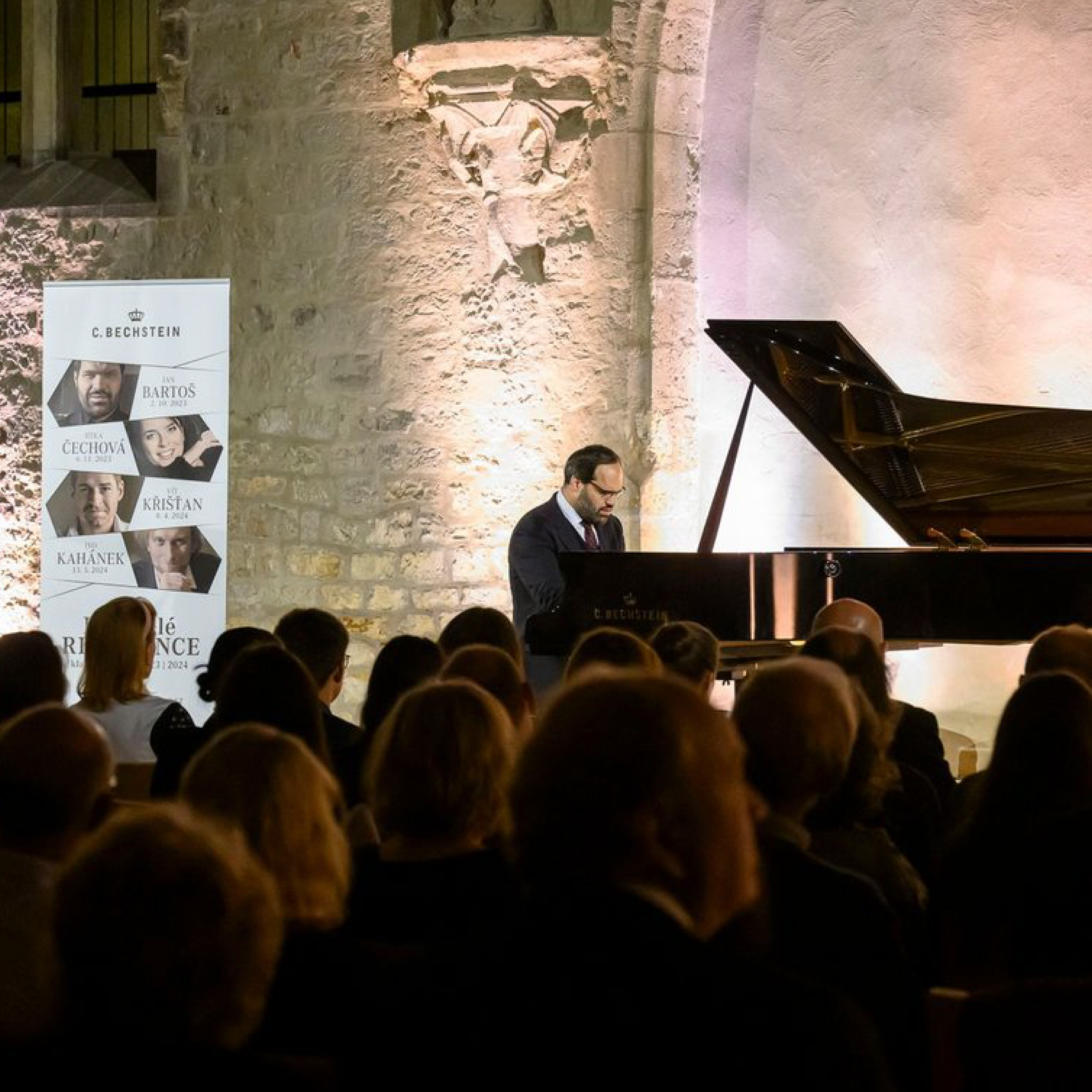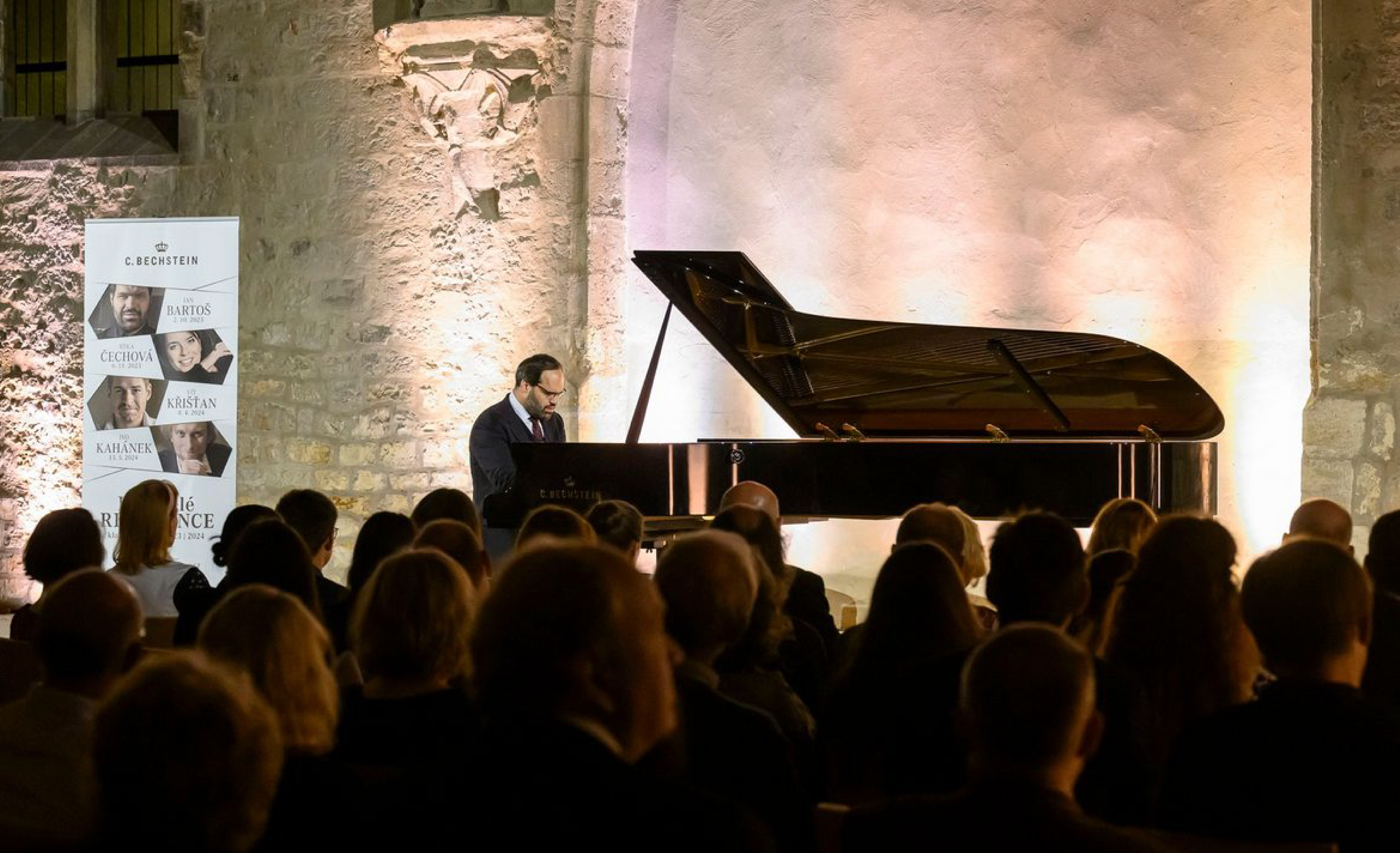
Positive review of Jan Bartoš’ concert by Věroslav Němec

Our pianist Jan Bartoš received a very positive review by Věroslav Němec on the Czech magazine Harmonie for his performance at the opening concert of the Bechstein Cycle on October 2nd in Prague.
Standing ovation for Jan Bartoš
“The remarkable piano cycle called Hybatelé Resonance has been taking place in St. Agnes Monastery since the 2018/19 concert season. It is organised by the renowned piano manufacturer C. Bechstein, who provided the performers with a great-sounding grand piano C. Bechstein D 282. In the previous five years, a number of our leading artists have performed, and this year's year also offers a quartet of important domestic performers: Jan Bartoš, Jitka Čechová , Víta Křišťana and Ivo Kahánek.
Jan Bartoš has prepared a very interesting and carefully thought-out program for his performance at the opening concert on October 2, 2023. In the first half, he introduced the Eight Preludes Op. 30 Miloslav Kabeláč. After them, he played two works by Janáček: the Sonata "Z ulice 1. X. 1905" and the cycle V mlhách. In the second part of the evening, Smetana's Dreams were performed.
Bartoš knows all the songs perfectly and has already recorded them all on CD. The Sonata and "Mlhy" can be found on Janáček's disc, which the artist released on Supraphon in 2019. Kabeláč's Preludes and Smetana's Dreams can be heard on Bartoš's last CD, which was released on Supraphon at the beginning of this year. Both recordings received a high rating, not only in our country, but also abroad.
I have had the pleasure of following Jan Bartoš from his childhood piano beginnings. Each of his performances and each of his recordings has always been an experience for me, and this time was no different.
I perceived both Kabeláč and Janáček as a deeply personal testimony of the pianist, I trusted him with every note, every phrase, every pause. Everything was clearly thought out in detail and honestly experienced. I marvelled at the pianist's rubatas, I admired his inspired work with time, his unorthodox pedalling and imaginative side voices, I was enchanted by the countless colour and dynamic shades as well as the singing, sonority and softness of his touch. It was interesting that the whole first half of the concert had a kind of strange melancholic or sad tone. Kabeláč's Preludia made an impression on me, as if somewhere in the dark distance, or even in another world, magical and unsettling coloured lights flickered. The names of the movements of Janáček's Sonata – Premonition and Death – speak for themselves. And Janáček's intimate cycle In the mists directly evoked misty autumn days with its soft, melting colours.
In Smetana's six-movement cycle Dreams, Bartoš transported us to a completely different world. To everything that the pianist applied in the first half of the evening, a new component was added: the virtuoso Liszt technique. Bartoš demonstrated in Dreams that he really has no technical limits. However, his virtuosity was not an end in itself – it belonged to Smetana and added lustre to his music. The dreams sounded like magnificent romantic images, from which the colours gushed out like geysers in places, so that immediately afterwards the pianist found space for a soothing caress or a sensitively arched cantilena. A surprise was the final movement, which Bartoš played not only at an incredible pace, but also showed a nice sense of humour in it. I admit that I have never heard such an evocative and impressive performance of Smetana's Dreams , and I fear that I will not again. Jan Bartoš has clearly matured into a world-class pianist.
The exceptionality of the evening was also felt by the audience, who rose to a standing ovation immediately after the final chords. Bartoš rewarded himself with Janáček's encore: the sound-picturesque Frýdecka Virgin Mary from the cycle After the overgrown sidewalk.